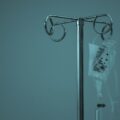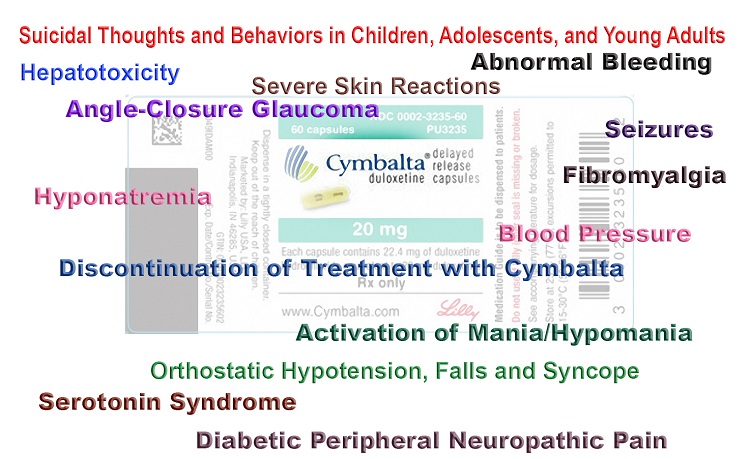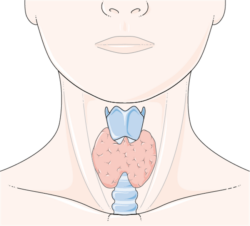My health issues started rearing their head in ninth grade, and given the vitiligo of my mother and MS (stabilized) of my father, perhaps it should not have been much of a surprise. I had mono in middle school, and then after getting a bad virus at the start of freshman year, my health deteriorated rather quickly.
Over the course of the first few years of high school, I was diagnosed with immunoglobulin deficiencies, gastritis induced anemia that was often recurrent, IBS, elevated blood sugar, insomnia, and hypothyroidism. I also developed hand tremors and was told I had SIBO. I was a student athlete and was often exercising over eight hours a week at the time. My diet in middle school represented the Standard American Diet, but after my health issues started, I ate a diet that loosely resembled the paleo diet without much benefit.
Entering college, doctors convinced me that my issues were due to malnutrition from undereating. I was encouraged to eat more and so I did. Over the next two years, I followed an unrestricted diet with a mix of junk and traditional health food. I went from 130 to 190lbs, a 60 pound weight gain. My stomach issues got better, but everything else remained the same, except I started experiencing anxiety and exhaustion. The doctors were right, but their advice was wrong. I wasn’t malnourished from a lack of food, but from a lack of the micronutrients that allow the mitochondria to convert food into energy. Looking back, it is no wonder I had no energy.
Just recently, I discovered the articles about thiamine on this website. It all began to make sense. Thiamine is a required mitochondrial nutrient, one that I was likely missing. I began thiamine and magnesium. I had previously tried magnesium, but I was intolerant to it. Since taking the duo for two weeks, I have started to notice a bit more energy, much better warmth in my extremities, and more stable blood sugar. However, that was preceded by major nausea, freezing low body temps, and worse blood sugar instability than ever suggesting a thiamine paradox at work. Here’s to hoping that this treatment works wonders going forward.
Health History
- Current Age: 20
- Height: 6ft
- Gender: Male
- Weight and body fat: 190lbs 15% Body fat
Family History
- Mom with vitiligo
- Dad with stabilized MS
Middle School
- Had mono at one point, always generally had minor fatigue
- Junk food diet
Ninth Grade
- Got terrible stomach virus at start of year
- Developed hand tremor
- Found out I was anemic with collagenous gastritis. (I suspect it was actually iron overload aka Morley Robbins theory.)
- Treated with Prilosec and iron supplements
- Ate relatively low carb
- Lots of tennis
Tenth Grade
- Developed IBS
- Discovered IGG and IGA deficiency and low vitamin D
- Got SIBO diagnosis
- Restricted diet even more by eliminating gluten and dairy
- Lots of tennis and track
Eleventh Grade
- Diagnosed hypothyroid
- Took synthroid without success
- Lots of tennis and track
Twelfth Grade
- Unrestricted diet as doctors convinced me that undereating was the cause of my issues. I went from 130lbs to 160lbs.
- Lots of tennis, track, and weightlifting
Freshman Year of College
- Ate paleo style to drop weight, dropped to 150lbs.
- Main issues were insomnia, chronic dry mouth, cold hands and feet, GERD, bloating, anxiety
Summer Before Sophomore Year Through End of Sophomore Year
- Started eating a lot again, unrestricted, and went up to 175lbs over the course of a year with lots of heavy lifting
- Fasting blood sugar of 99 and then 104
- Same symptoms as freshman year
- Tried things like megadosing zinc, megadosing vitamin D without success
Junior Year Through March 2021
- Same symptoms as freshman year, but slightly improved due to nutrient density
- Got shingles and recovered
- Ate lots of eggs, whole milk, liver, oysters, ground beef, chocolate, liver, potatoes, rice, bagels, butter — Ray Peat style
- Felt a bit better and warmer, but exhaustion became a symptom
- Had negative reactions to magnesium supplements despite low RBC
- I was trying to implement root cause protocol (Morley Robbins) after discovering my ceruloplasmin was low
- Donated blood per Morley Robbins advice. Of all the stuff I have done, this provided the most benefit to me in terms of improved thyroid function and general sense of wellbeing, but still had tons of issues
Present
- Discovered thiamine and this website and began thiamine supplementation. First with thiamine mononitrate March 20, 21. Suddenly, I had energy.
- Switched to 250 mg Benfotiamine with 120 mg magnesium on March 24th.
- Switched again to 100 mg Thiamax with 125 mg magnesium on March 25th.
We Need Your Help
More people than ever are reading Hormones Matter, a testament to the need for independent voices in health and medicine. We are not funded and accept limited advertising. Unlike many health sites, we don’t force you to purchase a subscription. We believe health information should be open to all. If you read Hormones Matter, like it, please help support it. Contribute now.
Yes, I would like to support Hormones Matter.
Image by hansmarkutt from Pixabay.
















Interestingly i was a cfs sufferer. I turned this around with the RCP – I’m 3.5 years in to that. 11 donations and very strict.
I started thiamine about 7 months ago and definitely noticed a gear change. I started with 1/4 capsule sipped in water over 3 hours, it used to make me quite light headed, i titrated very slowly.
I’m on around 350-400mg of allithiamine and 1000mg of sulbutiamine. I’m looking to add in some hcl and lower sulbutiamine as an experiment as it’s also cheaper and most of the experiments for cfs used hcl.
I added a food bases B complex alongside the bee pollen from the rcp.
My energy levels in mine and body have improved quite dramatically, I’ve also been doing mimosa pudica and formula 1 by microbe forumlas and this really helped my chronic loose stools. I’ve also added chinese accupuncture and done 15 sessions so far .
No one really talks about dosages so it’s hard to work out where to go, I’ve rarely seen anyone go above 400.
I stopped thiamine for 4 days as an experiment and i felt absolutely exhausted so i know it’s something that is helping me.
Energy is not consistent for first few months, you still get those down days but that reduced, now i barely get them at all, but still experience premature lactic acid accumulation compared to others, not sure this will ever fully go, but it may – . I walked for 3 hours last week, around 16km!
6 years ago i could barely climb the stairs due to the muscle burn!
Hi Anthony,
You seem to have a very similar story as I do. Currently trying to get on the RCP but having a hard time with magnesium. It makes me very tired. I can only take epsom salt baths so far. I’ve also recently found this page and feel I am thiamine deficient. I’m very curious to know, you said you didn’t handle magnesium well until you started taking it with thiamine. I have a few questions if you have time. What was your reaction to taking mag before you began thiamine supplementation? What kind of magnesium and how much did you start taking with thiamine? I’m trying to uphold the delicate balance between everything and was very intrigued by your comments.
Hi dear Keith! Your journey sounds very familiar (probably to most of us here :).
As Dr. Londsdale said, there is a wealth of information here around Thiamine Deficiency, how to supplement, other case studies, and more. This site is an excellent excellent resource.
You might also want to check out the Thiamine Deficiency FB group and the work of Elliot Overton. Also, Dr. Lonsdale and Dr. Marrs’ excellent book: Thiamine Deficiency Disease, Dysautonomia, and High Calorie Malnutrition.
I am personally just starting my thiamine journey as well after a strange conglomeration of symptoms my whole life, severe ME/CFS for 8 years in my 20s, what I call “weather dependent” fibromyalgia, and now a mild case of Long Covid.
I’m currently 40 days into supplementing with 100mg of Lipothiamine, making sure to also be taking a B-complex, 250mg magnesium (I also use topical magnesium to supplement). I’m also taking potassium because I found I was having cramps after I started the high B1 doses. In addition, I take 12 different types of beef organ supplements, eat lots of fish eggs for vitamin D and K (and sunshine when possible), and eat a carnivore diet with most of my calories coming from fat.
I thought that by this time I’d be doing much better, but am realizing after more reading and understanding that I’ve most likely been deficient my whole life – and then caused more deficiency with physical and emotional stressors – that it will take longer than 2 months and will most likely involve some not so great feeling periods. (Currently having a big dip that is quite uncomfortable physically and emotionally).
I read somewhere that it takes 6-12 months of high level B1 supplementation (in addition to other supplementation to support and make sure the high levels of B1 don’t get other vitamins and minerals out of whack) before symptoms reverse. Though some people experience remarkable results in much less time!
Please know that you’re not alone here…and I truly believe there is hope!
Hi Keith, if you are not aware of the breadth of this forum, I suggest that you explore some of the many posts that discuss these symptoms.
Can I get more info. Similar stuff.